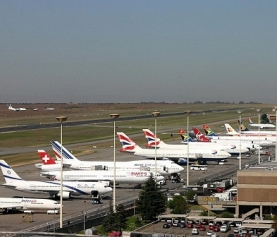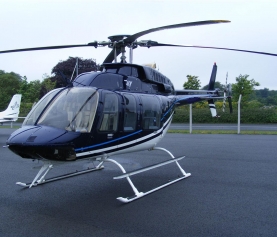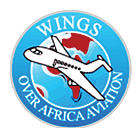
Aviation Safety
SADC Safety Organization to move to Swaziland The Southern African Development Community (SADC) states are launching a regional safety oversight organization to strengthening states safety oversight capabilities.
The SADC Aviation Safety Organization or “SASO” builds on the legacy of the work of the COSCAP-SADC program. The COSCAP –SADC program has assisted various states in the region prepare for ICAO audits. Also, the region has been working on harmonization of national regulations under the program since 2008.The provisions of model regulations were incorporated into National Regulations where such provisions were found to be missing in the National Regulations.
It is not mandatory that all SADC States choosing not to be members of SASO will have access to the same array of benefits, however, the highest priority will be give It exam pdf to the needs of Members of SASO. From the states that expressed interest in hosting the headquarters of SASO, Swaziland has been elected to host it.
The expectation is that SASO will move into its new offices in Mbabane in the last quarter of 2014. First Flight Data Management Course In the analysis leading to the Abuja declaration of 2012,it was observed that lack of implementation of Flight Data Management (FDM) is one of the main influencing factors of accidents in Africa.
Under standards introduced by ICAO in 2005, FDM became mandatory for most operators of larger aircraft. The Foundation was pleased to organize possibly the first flight data management course between Ethiopia and South Africa with its corporate Social responsibility partner Flight Data Services from Southampton, England. This unique course was hosted by regional Safety oversight agency CASSOA in Uganda.
It provided participants with a solid appreciation of the technical ,operational ,management and legal issues surrounding a flight data monitoring (FDM) programme ,sometimes also referred to as flight operational quality assurance (FOQA). With regulators and operators in the region only recently having focused their attention on FDM, it is expected that the next edition of this course will be full to capacity. This especially also since the course stood at the basis of Flight Data Services succeeding in producing a very useful FDM analysis from G1000 equipped Cessna Caravans that are sometimes referred to as the backbone of African air transport.
HIATT Joins For Safety & Operations Kevin Hiatt has succeeded Guenther Matschnigg as IATA Senior VP for Safety and Flight Operations. Hiatt joins IATA from AviAssist mother organization the Flight Safety Foundation (FSF) where he has been President and CEO since 1 January 2013, having joined FSF in 2010 as Executive vice President. He was subsequently promoted to the position of COO.
Hiatt previously served as Vice President for corporate Safety and Security for World Airways and was with Delta Airlines for 26 years in various positions, including Chief Pilot at the Harts field-Jackson Atlanta International Airport Pilot Crew Base from 2002 to late 2005. Joint Inspectors Group
C_TAW12_731Grows More states signed up to the African Cooperative Inspectorate Scheme (AFI-CIS) at the ICAO aviation safety symposium in Dakar in May. The African Civil Aviation Commission (AFCAC) –the specialized Agency of the African Union for aviation-is in charge of the scheme with the technical support of ICAO.
The scheme assists African States in improving the Effective Implementation of the ICAO Standards and Recommended Practices (SARPs) .It enables Africa to mobilize scarce, highly qualified resources among its members. A pool of qualified and experienced aviation safety inspectors receive further training from ICAO under the scheme.
The training includes refresher training to bring the inspectors up to date on matters related Air Operators Certification.AFCACs inventory of National Certified Inspectors under the scheme meanwhile contains more than 41 inspectors that have met the criteria to be AFI-CIS inspectors. The majority of these are for airworthiness with 6 inspectors being qualified to assist with Flight Operations safety oversight.
IATA-African Safety Rising IATA released it 2013 Safety performance report early April.”We are seeing progress in Africa. Airlines on the IOSA registry are performing almost seven times better that non-IOSA operator in the region. But we must remember two things; First, Africa’s overall rate is still many times worse than global levels, so there is plenty of works to do. Second, we cannot take the recent improvement trend for granted.
To make these gains a sustainable foundation on which to achieve world-class safety levels is going to require the continued determination and commitment of all stakeholders, including governments,” said Tony Tyler,IATA Director General and CEO. Airworthiness Fundamentals Course The Foundation ran its first airworthiness fundamentals course at CASSOA in Entebbe, Uganda in March.
The three day course addressed the key airworthiness aspects of design, construction, maintenance and operation of aircraft .It was inspired by similar courses at renowned institutions such as Cranfield University in the UK. The course was organized with experts from the Foundations corporate social responsibility partner ADSE engineering and consultancy from the Netherlands.
The short course is designed for experienced personnel from all parts of the aviation industry. It is of particular value to suppliers, operators and operations department, Maintenance Repair and Overhaul MRO staff and civil aviation authorities who are concerned with continuing airworthiness and certification of aircraft and their systems.
It provided a unique in-region opportunity for an update on the latest developments in airworthiness issues as a continuous professional development course for those already employed in or around airworthiness issues. It assists the participants in communicating the importance of airworthiness requirements as the relate to aircraft operation and maintenance and provided fresh insights into subjects such as auditing techniques and human factors. Hosted by Foundation partner CASSOA, it crucially also included an overview of CASSOAs airworthiness certification topics.
As it was the first time the Foundation ran this course, the evaluation of the course has lead to a number of charges. These changes include a bigger focus on continuing & continuous airworthiness human factors. That will ensure the next edition, foreseen for November 2015 in Kigali, Rwanda, is even more tailored to the needs of professionals in the region.
Aviation organizations are striving to ensure safety management is implemented by African airlines and private charter companies by forming oversight committees and formulating rules and regulations to be followed. For few years this has been introduced it has field fruits as accidents have drastically reduced and most airlines have complied with the regulations and implemented the safety management systems. Also air transport companies in Africa are ensuring all operators comply and implement to make the skies safe. Anthony A Juma is the Editor and Director Commercial and Flights Operations at Wings Over Africa Aviation Limited.





